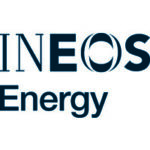After settling electoral reform on December 3, 2013, Mexico is shifting its attention to its highly publicized and highly criticized reform of the oil industry.
Lawmakers are still adjusting the fine print of the bill but the main point of opening up the country to private investment remains intact. Concessions and lucrative contracts involving Petroleos Mexicanos (Pemex) are being debated and the magnitude of the reform is being explored by government officials.
President Enrique Peña Nieto originally released a plan on August 12, 2013, to lift the ban on private contracts. Eventually, he hopes to end Pemex’s dominant role in oil utilities, including shipping and refining. Mexico’s refusal to share its resources can be traced back to 1938, when then-president Lazaro Cardenas nationalized foreign oil operators and declared the subsoil as property of Mexico. Pemex assumed full control of all oil-related projects in the region and has held a monopoly on the industry ever since.
However, Pemex’s credibility has fallen considerably over the last decade. Locals routinely describe the company as corrupt and fraudulent. The company’s output has posted production declines each year for the past decade. The consistent underachievement has resulted in a total decline of more than 900 MBOPD from 2004 to 2012 and a 9% decline in refining capacity to 1.54 MMBOPD from 1.7 MMBOPD. Mexico, despite the subpar numbers, still holds an estimated 13.9 billion barrels of reserves. Pemex executives say there are potentially 50 billion barrels of oil in the deep water of their area of the Gulf of Mexico yet to be exploited.
 Currently, oil taxes provide one-third of the government’s budget. Pemex’s cash-strapped account restricts it to produce oil from onshore and shallow regions of the Gulf. Deep water drilling, at this point, is well beyond their financial capacity.
Currently, oil taxes provide one-third of the government’s budget. Pemex’s cash-strapped account restricts it to produce oil from onshore and shallow regions of the Gulf. Deep water drilling, at this point, is well beyond their financial capacity.
“We have to evolve,” said Carlos Morales, head of the exploration and production for Pemex. “The investment required for discovering and extracting those resources is huge.” He believes Pemex should be spending $60 billion a year on exploration and production, but currently spends just $25 billion. Executives of the company believe the only way to bridge that enormous gap is foreign investment.
Mexico natives aren’t welcoming the idea, as tens of thousands protested in Mexico City on December 1, 2013. President Nieto’s approval rating has fallen to 44%, eight points lower than in July 2013. The bill was presented to Congress in August 2013 and its looming impact has been a hot topic on a worldwide level. Nieto has been undeterred by the opposition and is hopeful the industry will open its doors to energy giants, like Chevon (ticker: CVX) and ExxonMobil (ticker: XOM) in particular, to revive the country’s floundering economy.
Pena Nieto’s government says approval of an energy overhaul would lift economic growth 1 percentage point by 2018 and reverse oil production losses. A more “market-friendly” reform could increase foreign investment by as much as $15 billion annually and boost potential economic growth by half a percentage point, according to a Nov. 28 report from JPMorgan Chase & Co.
Petrobras A Step Ahead?
Brazil and its state-owned oil company Petroleos Brasil (Petrobras) (ticker: PBR) has used foreign investment to expedite its E&P programs. The semi-public company is approximately 60% owned by the government and recently became Latin America’s largest company by revenue. It has utilized production sharing contracts to lure in several international companies from countries like the United States, India and China, and is banking on their participation to develop its ample offshore assets. PBR recently signed a production sharing contract with Shell (ticker: RDS-B), Total (ticker: TOT) and two international companies to exploit the Libra Basin, which is expected to hold between 8 billion and 12 billion BOE. PBR received $6.9 billion from each company as part of the agreement and will retain 41.65% of the profit oil, all while holding a 40% ownership interest in the Basin.
[sam_ad id=”32″ codes=”true”]
Important disclosures: The information provided herein is believed to be reliable; however, EnerCom, Inc. makes no representation or warranty as to its completeness or accuracy. EnerCom’s conclusions are based upon information gathered from sources deemed to be reliable. This note is not intended as an offer or solicitation for the purchase or sale of any security or financial instrument of any company mentioned in this note. This note was prepared for general circulation and does not provide investment recommendations specific to individual investors. All readers of the note must make their own investment decisions based upon their specific investment objectives and financial situation utilizing their own financial advisors as they deem necessary. Investors should consider a company’s entire financial and operational structure in making any investment decisions. Past performance of any company discussed in this note should not be taken as an indication or guarantee of future results. EnerCom is a multi-disciplined management consulting services firm that regularly intends to seek business, or currently may be undertaking business, with companies covered on Oil & Gas 360®, and thereby seeks to receive compensation from these companies for its services. In addition, EnerCom, or its principals or employees, may have an economic interest in any of these companies. As a result, readers of EnerCom’s Oil & Gas 360® should be aware that the firm may have a conflict of interest that could affect the objectivity of this note. The company or companies covered in this note did not review the note prior to publication. EnerCom, or its principals or employees, may have an economic interest in any of the companies covered in this report or on Oil & Gas 360®. As a result, readers of EnerCom’s reports or Oil & Gas 360® should be aware that the firm may have a conflict of interest that could affect the objectivity of this report. A member of EnerCom has a long-only position in Petrobras.







